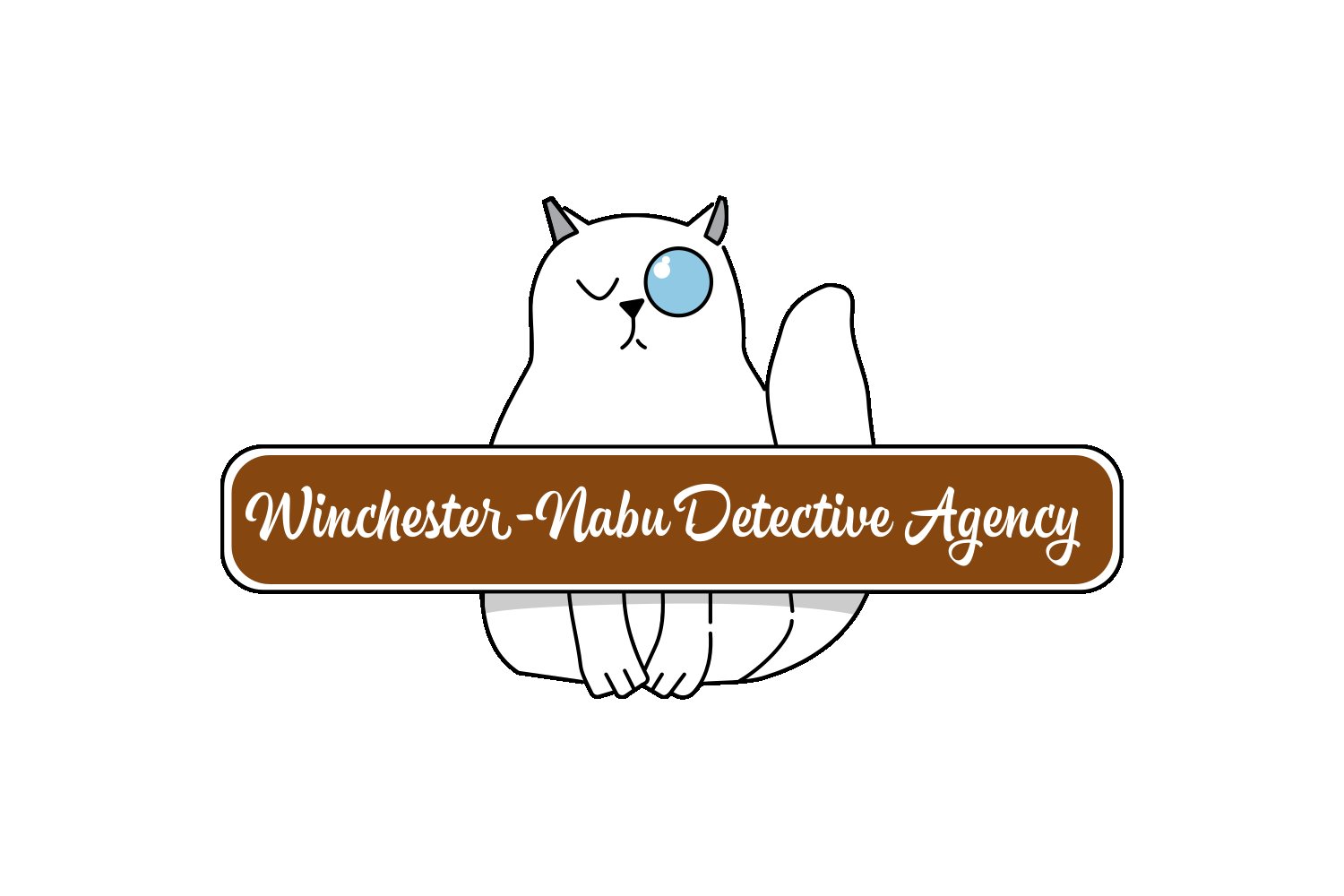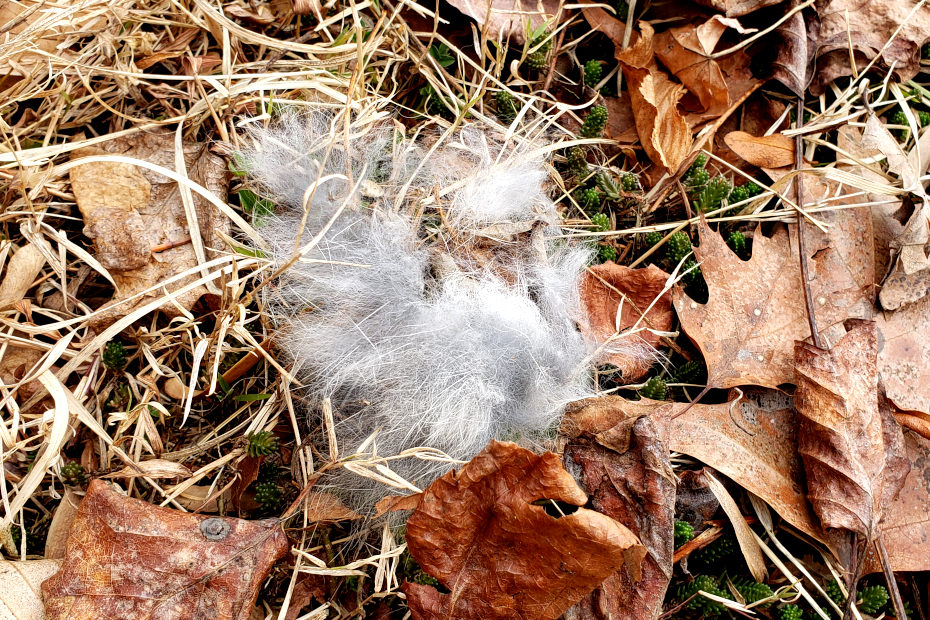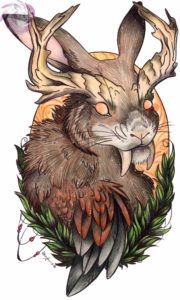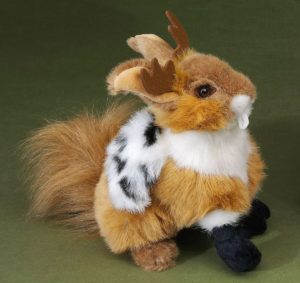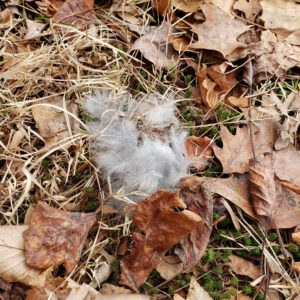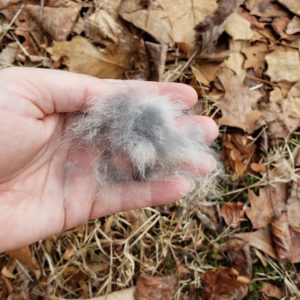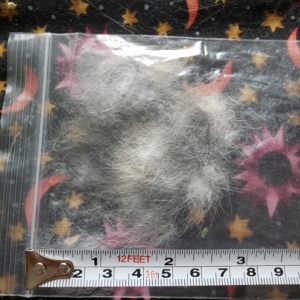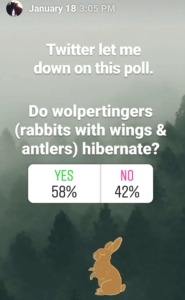This work is supported by the generous backers who adore my cat stories at Patreon.com/amberunmasked and they also get first access to what’s happening with my books and podcast.
Where We Left Off:
Oliver, the butler, Gus, and Amber encountered turkeys in the woods. It was the third case opened on December 25, 2019.
The Unseen:
More questions than answers
It’s been quite a while since we’ve had any visits from wolpertingers in our woodsy-with-high-traffic area. The creatures of the Leporidae family should be hibernating. We’ve had some alarmingly warm days for winter. While the temperatures reach my peak comfort zone and I enjoy them, I know it’s not a good sign. It’s winter. It’s supposed to be cold. Not brutally cold where you can’t inhale properly and your skin hurts going outside. Just a decent level of cold. We’ve been wondering if the chipmunks and other creatures who normally should be hibernating are coming out to gather up more food; hibernating doesn’t mean they never wake up and do things.
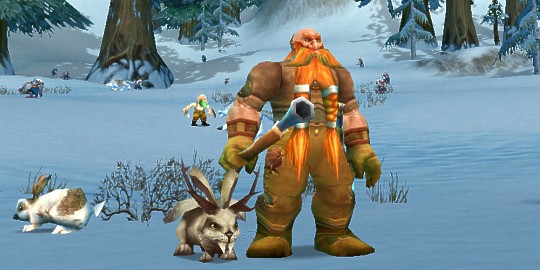
The hibernation brings up another point though: has been there been any confirmation that wolpertingers hibernate? The artists’ renderings I’ve researched have them in all kinds of climate including snow. Maybe they don’t do what their eastern cottontail cousins do.
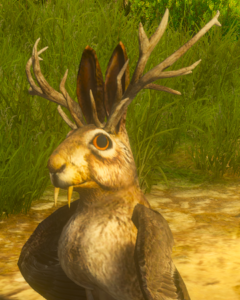
Speaking of online research, today’s search produces much different results than a year ago. Now there’s a lot more taxidermy (could be because I’ve looked that up and Google siphons that into what it thinks I want to see now) instead of World of Warcraft. And due to the newly released Witcher series on Netflix, that’s coming up as a hit in my top image results. There are even a bunch of wolpertinger plush toys in my results now! I don’t remember seeing any at all before. Etsy has some patterns for those who want to make their own plushies and buy amigurumi. From the looks of it, the wolpertinger has even made its way into the furry community (at least in the concept art that came up).
New language and grammar?
Something else that I drew my attention from today’s image results is that wolpertinger seems like it might be evolving into a category name other than the specifically defined: rabbit with wings, antlers, and fangs. There’s one that’s a fox; another a squirrel; yet another is a platypus. Scientifically, does that mean wolpertinger as a category loosely defined come to usage the way we use a word like bug? Would any creature that we would use the word chimera for also allow for grammatical usage of the word wolpertinger now?
Evidence
This brings me back to why I was originally going to post about wolpertingers today in January. While Gus and I were adventuring higher on the mountain at the trails that branch up and down from the main house, I discovered a fluffy tumble on the ground. It was right in the middle of a wide trail leading to the residence. Gus was off climbing around the numerous trees felled by high winds. He was not particularly helpful with this discovery.
This beautiful tumble of fur was the softest fur I’ve ever felt. It reminded me of the few garments our family has had in the past made of rabbit fur (my cat back in those days walked around with one of the gloves in her mouth and growled just like when Gus has a live animal). I was a child and we weren’t that aware of animal cruelty.
Sidebar: Leather and real fur are natural, practical, and durable though how to get them is horrifying. Even as a near-vegan, I’ve gone back to real leather boots because the faux stuff is chemical plastics and more of a burden on the eco-system; they are also crap quality that don’t last. Fur is still a no-no unless there’s a way to ethically source it which is not something fast fashion has the capacity for, only someone who works on one-of-a-kind small scale could do it. Anyway, I’m familiar with what rabbit fur feels like from experience other than petting domesticated house pets.
The color was another thing I found intriguing and worthy of taking the specimen home for examination. It’s grey and white. The eastern cottontails I’ve seen in the past couple of years are usually earthy browns with black speckling. They have some grey and basically are full of the same variety of colors you would see in tree bark so they can be camouflaged.
What does the fox say?
Glad you asked. I have no answer. The foxes change their coloring with the seasons; but also, there is a species called the grey fox. Their fur is probably soft too, though I doubt it feels quite like the cottony cloud of Leporidae fur. We’ve only spotted the red foxes around here.
The red fox fur is typically reddish but they can have different phase and color variations, such as black or even grayish (silver), but it is the white tip of the tail that never changes and always distinguishes it from other fox species.
Parke, John. “New Jersey Wildlife: Red Foxes, the State’s Most Adaptable Wild ‘Dogs’.” Nj.com, Hunterdon County Democrat, 10 Sept. 2013, www.nj.com/hunterdon-county-democrat/2013/09/new_jersey_wildlife_foxes_the.html.
Case Findings:
As we think about what the fox fur might feel like, it’s a good bet that the Leporidae family’s fur is softer. Therefore, I’m sticking with the theory that this specimen came from a wolpertinger not a fox. I’ve conducted an official survey on Twitter on whether wolpertingers hibernate or not with zero responses so I took the poll to Instagram. We have an answer:
Case Status: Closed
